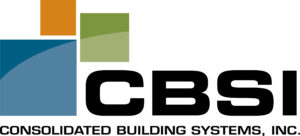One thing we all have learned is that change is constant. How we navigate change can determine the type of leader we are. Navigating change has been a topic that my husband David and I have focused on for the last year as we have recently merged our careers to join together in running the family construction management business established by his father over 30 years ago. To many this sounds crazy to live and work together, but for us this was a calling.
As you navigate the inevitable changes that will impact your business and life, here are some tips you might find helpful.
1. Ground yourself in your core values.
2. Listen to understand.
Over the next month I spent more time listening to the staff to understand what they were inspired by, what motivated them and what they wanted out of the organization. By investing time with each of them, I began to see a common theme. They loved the family feel of our company. The irony is the staff rarely engaged with one another. As I sat over the holidays thinking about how I could add value and start to break down the walls in our small company, I realized that to change the culture I needed to change the environment. Realizing that staff wanted a place to gather, I started rethinking our space. I came up with an idea that sounded crazy at first but immediately changed who we are as a company. The simple change from eliminating a conference room and creating a CBSI Lounge & Coffee Bar has given life back to our team.
3. Changing the environment can change the culture.
Understanding what mattered to them helped us to navigate the change that needed to happen in our culture. As a team we redesigned our small space by creating a wood focal wall, an elegant coffee bar with custom floating shelves, along with purchasing a modern industrial dining room table to gather for relationship building and informal organizational meetings. By taking the formality out of meeting around the cold conference room table, the new warm environment invites our staff to engage with one another over a cup of coffee. This unconventional design has given birth to a new dynamic environment inspiring creativity and excitement in our team.
As servant leaders, we are constantly striving to create environments for our employees to thrive. They are our most important resource and our investment in them is our number one priority. For us, changing the environment is changing the culture and opening doors for building a foundation for growth. While we may have been inspired by our common love of coffee, our true intent was to build long-lasting relationships and create an environment where we live out one of our core company values of family first. We are family here at work and our new space invites all who enter to gather around the table for a conversation.
Sara Suter
Vice President
CBSI

